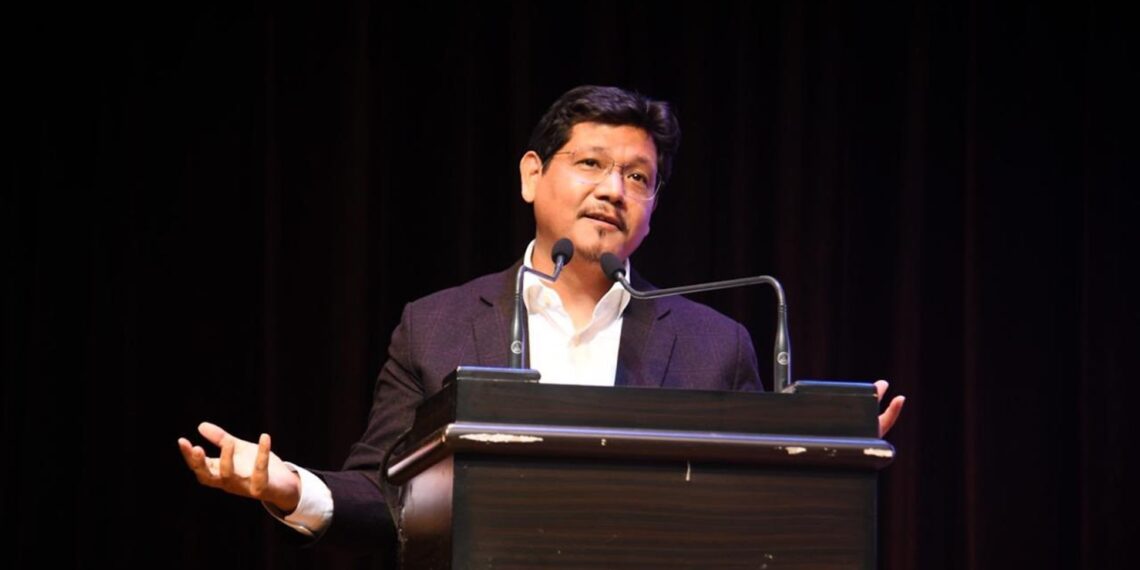SHILLONG: 2024 was a year of significant developments for Meghalaya, marked by ambitious economic goals, political shifts, devastating natural disasters, and a major corruption scandal.
From the declaration of a vision to create a USD 100-billion economy by 2047, to the National People’s Party (NPP) securing a decisive majority, the state experienced a year full of impactful events.
In a landmark announcement on Independence Day, Chief Minister Conrad K. Sangma presented the “Viksit Meghalaya” vision, aiming for a USD 100-billion economy by 2047.
While hoisting the national flag at the Polo Grounds, Sangma outlined his aspirations for the state, which included becoming an economically developed hub by the time India celebrates its 100th anniversary of independence and Meghalaya marks 75 years of statehood.
ALSO READ: Meghalaya: Rs 90 crore NH-6 renovation project to be completed by March 2025
“I aspire for a ‘Viksit Meghalaya’… a USD 100-billion economy by 2047,” he said.
2024 also witnessed the devastating impact of heavy rainfall, which triggered massive flooding, particularly in the West and South Garo Hills districts.
The flood claimed the lives of 17 people, including two children, and caused widespread damage to infrastructure and homes, affecting several regions across Garo Hills.
In addition to the natural disaster, Meghalaya found itself embroiled in a multi-crore corruption scandal involving a road project.
The scandal centered around the construction of a road that connects Shillong with Tura via Nongstoin and Rongjeng, which was approved in 2010 under the Special Road Development Programme-North East.
A government investigation uncovered lapses and corruption involving senior engineers and contractors from private firms based in Telangana and Haryana.
ALSO READ: Meghalaya targets early 2027 for hosting National Games
An FIR was lodged, naming nine individuals, including top state officials and company representatives, for their involvement in the alleged mismanagement of over Rs 2,300 crore in funds.
The political landscape of the state saw a significant shift in August when three out of four Congress MLAs defected to the NPP, boosting the ruling party’s strength to 31 seats in the 60-member assembly.
The defection strengthened the NPP’s position, enabling it to achieve a majority on its own in the coalition-led state government, which also includes the UDP and BJP.
Chief Minister Conrad Sangma also addressed the issue of the Citizenship (Amendment) Act (CAA) in an interview earlier in the year, highlighting that the Sixth Schedule of the Indian Constitution covers most of Meghalaya, protecting it from the impacts of the law.
Sangma also advocated for the extension of the Inner Line Permit (ILP) regime in the state, a move that would restrict entry for “outsiders” and safeguard the region from unchecked immigration.
In December 2019, the Meghalaya Assembly had adopted a resolution calling for the implementation of ILP, which would regulate the entry of people from outside the state, particularly those coming from other parts of India.
ALSO READ: Meghalaya CM urged to launch probe into illegal boulder transportation
In a first for the state, 2024 also saw the establishment of a private medical college with government approval.
The PA Sangma International Medical College, part of the University of Science and Technology, began its MBBS course with an intake of 150 students, 64 of whom were from Meghalaya.
This development marked a significant step toward improving medical education and healthcare infrastructure in the state.
As 2024 came to a close, Meghalaya found itself at a crossroads, balancing between economic ambitions, political challenges, natural calamities, and efforts to tackle corruption.
The year highlighted the state’s resilience and the continuing quest for development, even amidst significant hurdles.















